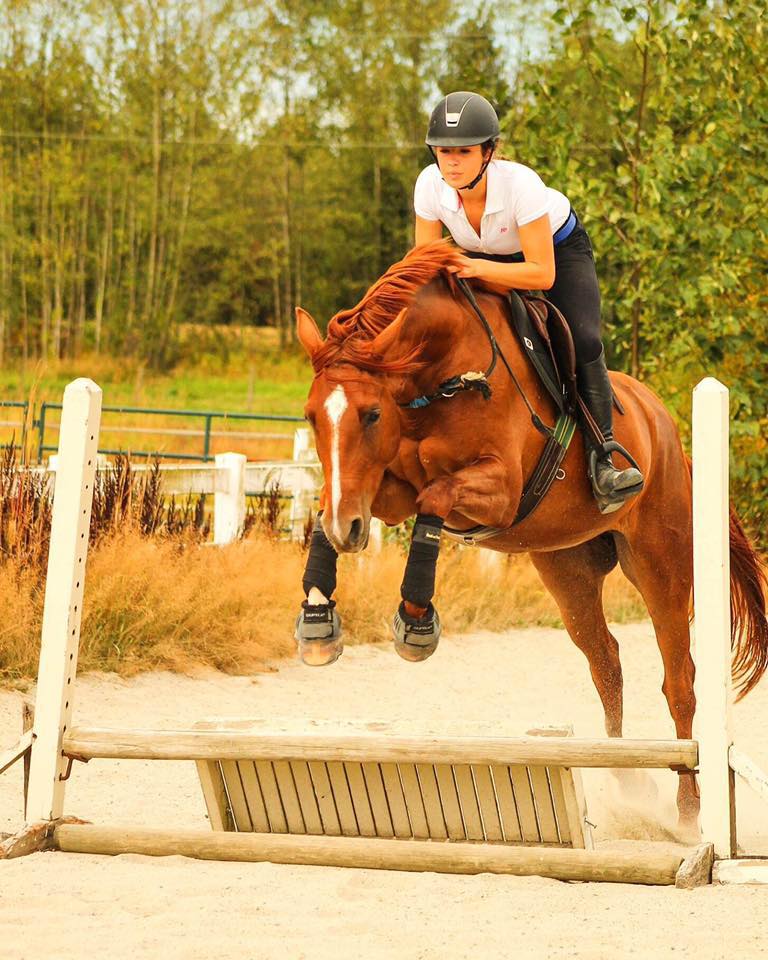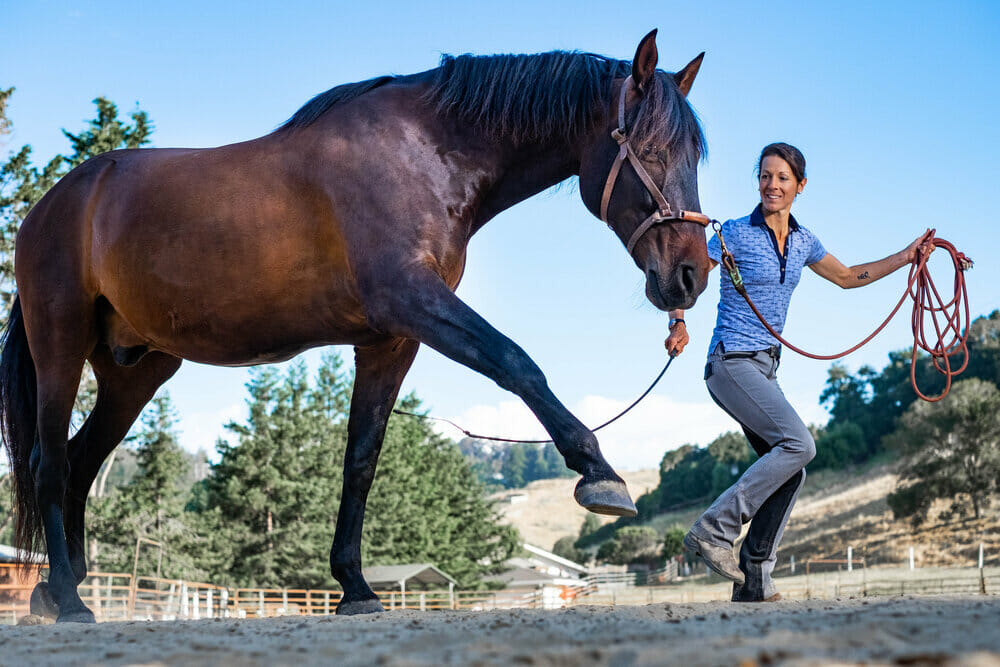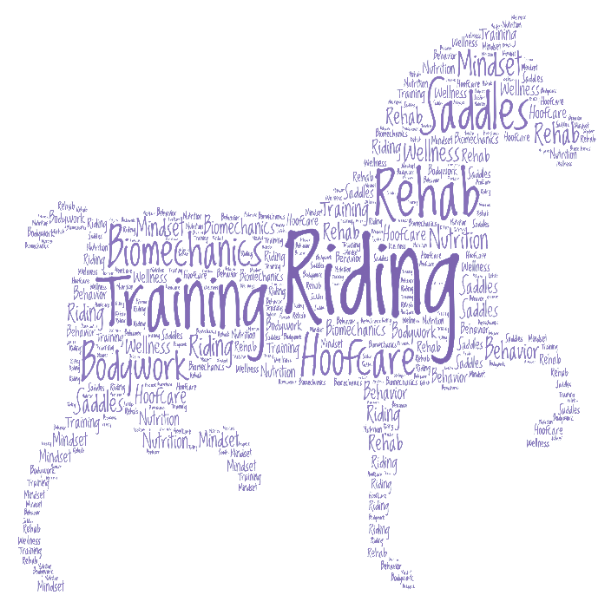
If you are satisfied with the initial interview with the trainer, it is time to see if the words match the actions. What should you look for to establish that welfare centric, knowledge based protocols are being followed:
- Clean and Safe Facilities: A well-maintained and safe training environment essential. Check for clean stables/pastures, well-kept arenas, and properly maintained equipment. Look for an environment and management practices that minimize stress and ensure the horse’s comfort.
- Observing Training Sessions: Watch the trainer in action. Do they exhibit patience and understanding? Are they effective communicators, both with the horse and the rider? Evaluate how they handle challenges and setbacks – a critical aspect of any successful training program.
- Interaction with Horses: Observe how the trainer interacts with horses outside of formal training sessions. Genuine care and a respectful demeanor towards the horses in their care are indicative of a trainer who values the well-being of their equine partners.
- Client Testimonials: Don’t hesitate to ask for references or client testimonials. Positive experiences from other horse owners can provide valuable insights into a trainer’s track record and the satisfaction of their clients.
Overview:
In the unregulated landscape of the horse industry, choosing the right trainer becomes a mission of paramount importance.
By prioritizing horse welfare, understanding the trainer’s philosophy, and actively participating in the selection process through interviews and visits, horse owners can make informed decisions that not only enhance their riding experience but also ensure the well-being of their equine companions.
The journey towards finding the right horse trainer is not just a quest for expertise but a commitment to a partnership that places the horse’s welfare at its core.
Finally, if you find a trainer that ticks all of these boxes, then treasure them – They are worth their weight in gold!





